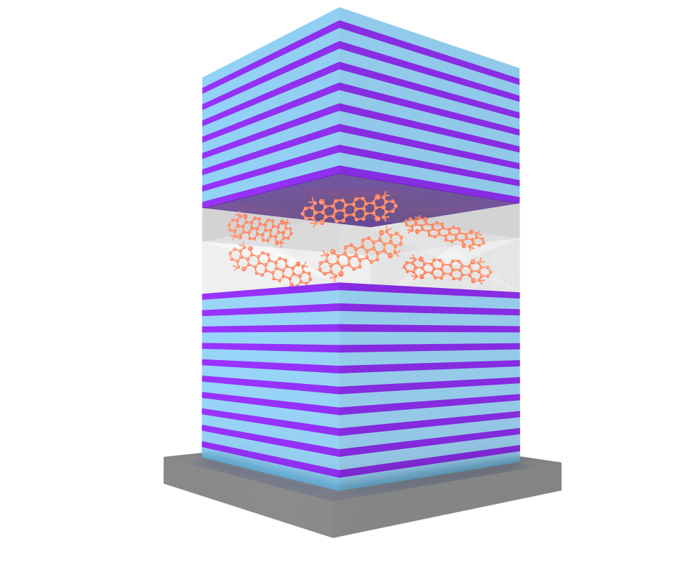An Australian-Italian research group has designed a prototype of a quantum battery that could be used for applications based on superextensive charging.
Quantum batteries are storage devices that work on Quantum Mechanics principles and reportedly have a faster charging time due to the quantum entanglement among the units. These devices are able to harvest and store light energy simultaneously and are intended for applications on the nanoscale. “Quantum batteries have a counter-intuitive property in which the recharge time is inversely related to the battery capacity, that is the amount of stored electrical charge,” said Cnr-Ifn researcher, Tersilia Virgili. “This leads to the intriguing idea that the charging power of quantum batteries is super-extensive, meaning that it increases faster with battery size.”
The prototype consists of a microcavity enclosing a molecular dye known as Lumogen-F orange (LFO). “The structures fabricated consist of a thin (active) layer of a low-mass molecular semiconductor dispersed into a polymer matrix that is deposited by spin coating and positioned between two dielectric mirrors, forming a microcavity,” the scientists explained. “By diluting the LFO, we reduce intermolecular interactions that lead to emission quenching, producing a high photoluminescence quantum yield of around 60% at low concentration.”
The Italian group prepared samples with 0.5, 1, 5, and 10% concentrations, which are described as representative of the optimal operating regimes. The device's charging and energy storage dynamics were assessed via ultrafast transient-absorption spectroscopy. “Our results demonstrate that as the number of molecules in the microcavity increases, its charging power density remarkably increases”, the academics said commenting on the testing results. “This means that it takes less time to charge a single microcavity containing N molecules than it would to charge N single-molecule microcavities, even if the latter were charged simultaneously.”
These properties, which the research group described as superextensive, are claimed to be supported by the theoretical modeling presented in the study and to be their key experimental findings. “By constructing the quantum battery in a way that units can exist in superposition, the total system can behave collectively,” the researchers went on to say. “This behavior, known as quantum coherence, allows the units to act cooperatively, giving rise to a hyper-fast charge that depends on the number of molecule-units.”
According to the scientists, the device's capability for energy retention should be gauged through decoherence processes, which would enable the battery to charge quickly and discharge much more slowly. “This stabilization of stored energy is a key step to exploit superextensive charging,” they concluded, noting that the battery could be used as an optical sensor in low-light conditions or potentially for energy harvesting applications. “More generally, the idea of superextensive charging may have wide-reaching consequences for sensing and energy capture and storage technologies,” they concluded.
The prototype is presented in the study Superabsorption in an organic microcavity: Toward a quantum battery, which was recently published in Science Advances. The research group includes scientists from the University of Adelaide in Australia and Italy's National Research Council (Cnr-Ifn) and Politecnico di Milano
This content is protected by copyright and may not be reused. If you want to cooperate with us and would like to reuse some of our content, please contact: editors@pv-magazine.com.




By submitting this form you agree to pv magazine using your data for the purposes of publishing your comment.
Your personal data will only be disclosed or otherwise transmitted to third parties for the purposes of spam filtering or if this is necessary for technical maintenance of the website. Any other transfer to third parties will not take place unless this is justified on the basis of applicable data protection regulations or if pv magazine is legally obliged to do so.
You may revoke this consent at any time with effect for the future, in which case your personal data will be deleted immediately. Otherwise, your data will be deleted if pv magazine has processed your request or the purpose of data storage is fulfilled.
Further information on data privacy can be found in our Data Protection Policy.